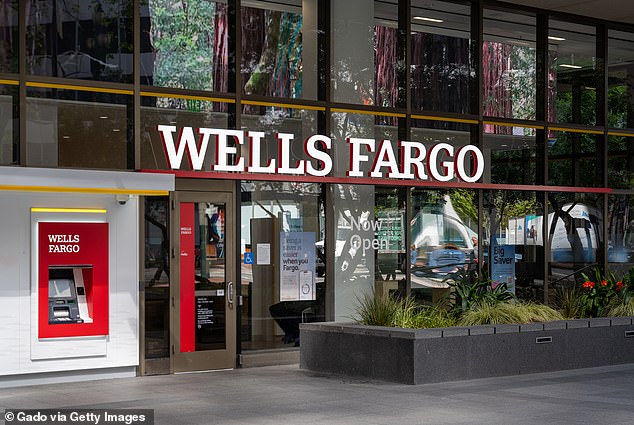Americans are emptying Wells Fargo’s coffers of millions by signing up for the first credit card focused entirely on paying rent.
Wells and startup Bilt launched the Bilt Mastercard in 2022, a rewards credit card that attracted more than 1 million new accounts in its first 18 months.
With the Bilt card, users can pay their rent without the landlord passing on the 2 to 3 percent transaction fee to them.
Paying for a rental also entitles you to points (one for every dollar spent) that can later be redeemed to book flights, hotels or rental cars, or can be transferred to travel partners such as American Airlines, Air France and Marriott Bonvoy.
Typically, some credit card customers carry over balances from one month to the next, which means they need to pay interest to the bank.
But customers who purchased the Bilt Mastercard are smarter than most.
They are not carrying balances at the rate executives anticipated, and as a result Wells is losing as much as $10 million a month on the program. Wall Street Journal reported.
Wells Fargo is reportedly losing up to $10 million a month from the Bilt-Mastercard partnership, which closed in 2022
Credit card issuers make most of their money from the interest they charge if their customers don’t pay off their balance in full at the end of the month.
But initial reports suggest Bilt card users have been paying off their card every month because they primarily use it for rent, thereby racking up free points on what would otherwise be a mandatory expense.
Before launch, Wells expected that 65 percent of purchases with the card would be non-rental. The reality ended up being exactly the opposite.
That woefully inaccurate prediction hit the bank hard because under the existing arrangement, Wells is assuming much of the transaction costs that would normally be borne by tenants.
The San Francisco-based bank has also been paying its partner Bilt a fee of about 0.8 percent per rental transaction.
And although it earns commissions every time someone swipes their card for anything other than rent, Wells splits them with Bilt.
Finally, Bilt receives $200 from the bank every time someone opens a new account.
It seems increasingly likely that this deal will be far more beneficial for Bilt and its chief executive, Ankur Jain, who has become a billionaire thanks to the partnership.
Wells told the Journal that dual brands like this are a “modest part” of its credit card business.
“As with all new card launches, it takes several years for the initial launch to come to fruition,” a spokeswoman for the bank said. “We look forward to continuing to work together to ensure this is a success for both Bilt and Wells Fargo.”
Bilt was harsher in his response to the bombshell article, saying the Journal report “is an inaccurate representation” of the association.
Behind the scenes, Wells is reportedly telling Bilt that cardholders aren’t paying enough interest to make this profitable.
Meanwhile, Bilt is upset that the bank is replacing marketing of the Bilt card in Wells Fargo branches with its own native credit cards.
Bilt’s story began in 2019, when Jain founded the company. His mission was to find a banking partner to issue his first credit card, as his firm was not capable of issuing loans on its own.
Major lenders including US Bancorp and Synchrony Financial rejected Jain’s proposal, and he even spoke to JPMorgan Chase about starting a business together.
When Jain presented his proposal for a rental-based card to Wells, some employees apparently thought the idea was crazy.
But at the time, Charlie Scharf was the CEO and one of his main goals was to revitalize the company’s credit card offering.
The idea was to attract younger customers who were renting at the moment but had ambitions to get a mortgage one day.

Rewards can be used to book travel.

The Bilt Mastercard offers 3x points on dining, 2x points on travel and 1x points on rent. Although data shows that more than half of the transaction volume goes to rent, which is the least profitable for Wells Fargo.


Wells Fargo CEO Charlie Scharf (left) signed the deal with Bilt in hopes of revitalizing the bank’s credit card offering and generating more mortgages in the future. Bilt Technologies CEO Ankur Jain has since become a billionaire thanks to the partnership.

Bilt is upset that the bank is replacing marketing of the Bilt Card in Wells Fargo branches with its own native credit cards.
If Wells was behind the popular Bilt card, perhaps Bilt cardholders would choose them as their preferred mortgage lender in the future.
The bank’s reputation was also in turmoil at the time after it admitted to a long-standing fraudulent practice whereby company employees opened millions of unauthorized bank accounts to meet unrealistic sales targets.
Wells agreed to pay $3 billion in fines for this conduct in 2020.
Unless things improve significantly, the bank has reportedly told Bilt that it will not renew the card contract, which is set to expire in 2029.
That means Americans have about five years left to sign up for the card that has become a favorite of travel-hungry apartment dwellers.


